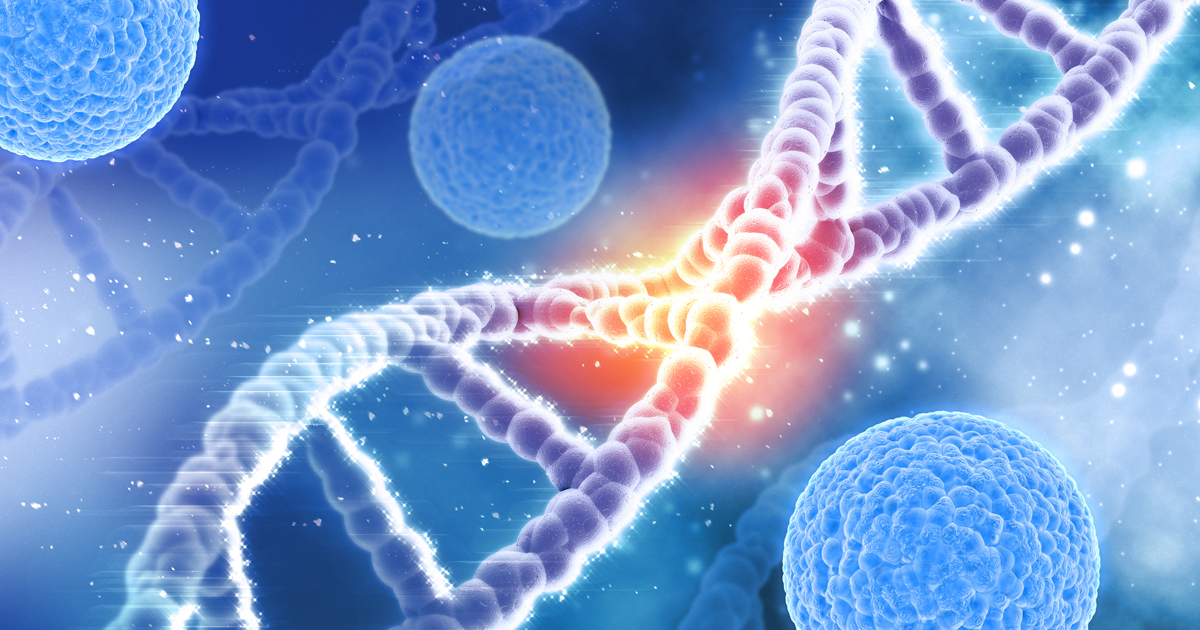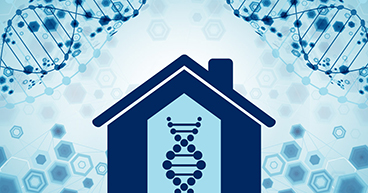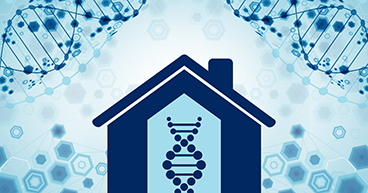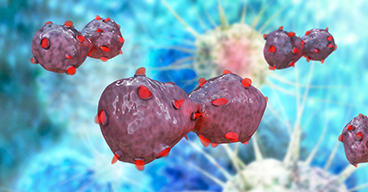
It's impossible to know if, when or where in the body cancer will come calling. Cancer risks increase with age, lifestyle choices, environmental exposures and other factors, but the exact causes of many cancers—and why they affect some people but not others--remain a mystery. A lifelong smoker may never develop the disease, for example, while some physically fit non-smokers do. But for some people, the risk of cancer poses a constant, known threat, not because of lifestyle decisions or other risk factors, but because they have what’s known in the oncology world as a hereditary cancer syndrome, caused by a gene passed through the family—a diagnosis that may be both scary and, by offering answers and opportunities for interventions, empowering.
“ People who learn they have an inherited risk for cancer may have a variety of emotional responses that run the gamut, from fear and anxiety to guilt and anger. Learning of an inherited risk for cancer can also provide relief in the form of answers as to why the cancers have happened in the family, as well as a sense of hope and empowerment, affording patients the opportunity to be screened more closely to find cancers at earlier, more manageable stages or, in some circumstances, to take steps such as surgeries to prevent cancer altogether.” - Eric Fowler, Licensed Certified Genetics Counselor
Put simply, a hereditary cancer syndrome is a cancer risk that runs in the family. The risk stems from a defective or mutated gene that is passed from generation to generation. Hereditary cancer syndromes are associated with up to 10 percent of all cancer diagnoses. The cancer type that develops from a syndrome depends on the mutated or defective gene. For instance, hereditary breast and ovarian cancer syndrome stems from mutations in the BRCA1and/or BRCA2 genes. This syndrome significantly increases a person's chance of developing breast, ovarian, prostate and other types of cancer. People with Li-Fraumeni syndrome, characterized by a mutation in the TP53 gene, have a high risk of developing cancer by the age of 30 and are almost certain to get cancer by age 60. People with cancer syndromes have a higher risk for multiple cancers and/or rare cancers, and are more likely to develop cancer at a younger than average age, says Melanie Corbman, a Licensed Certified Genetics Counselor and Manager, Clinical Genetics, Eastern Region at CTCA®.
Which syndromes are the most common?
Common syndromes and the cancers associated with them:
| Cancer syndrome | Genes | Associated cancers |
|---|---|---|
| Hereditary breast cancer and ovarian cancer syndrome | BRCA1, BRCA2 | Breast, ovarian, prostate, pancreatic |
| Li-Fraumeni syndrome | TP53 | Breast, soft tissue sarcoma, bone, leukemia, brain, adrenocortical carcinoma |
| Cowden syndrome | PTEN | Breast, thyroid, endometrial |
| Lynch syndrome | MSH2, MLH1, MSH6, PMS2, EPCAM | Bowel, endometrial, ovarian, renal pelvis, pancreatic, liver, stomach, brain, breast |
| Familial adenomatous polyposis | APC | Malignant and benign bowel tumors, brain, stomach, bone, skin |
| Retinoblastoma | RB1 | Eye (retina), melanoma, and soft tissue sarcoma |
| Multiple endocrine neoplasia type 2 | RET | Thyroid (medullary), benign adrenal gland tumors |
| Von Hippel-Lindau syndrome | VHL | Kidney, multiple noncancerous tumors |
Patients diagnosed with most cancer syndromes will not necessarily develop cancer. But knowing their syndrome status may empower them to take critical steps—to help detect cancer in its early stages, to help prevent cancer from occurring and to help their loved ones make decisions on whether to seek their own interventions. Some patients, for example, may choose aggressive screening programs. Patients with syndromes that increase breast cancer risks may decide to alternate between mammograms and breast MRIs every six months. For other patients, more aggressive prophylactic surgeries may be the preferred option.
"If someone is not ready to choose surgery, I say start with the screening and see how that goes for you," says Corbman, who leads the High-Risk Program at our hospital in Philadelphia. "The risks increase with age, so someone who is 25 has a lower risk and may be able to put off some decisions if they choose.” Actress Angelina Jolie went the more aggressive route. She was 37 when she had a prophylactic double mastectomy in 2013, after learning she had a BRCA1 mutation. "Once I knew that this was my reality, I decided to be proactive and to minimize the risk as much I could," Jolie wrote in The New York Times. Jolie, whose mother died of ovarian cancer at the age of 56, later had her ovaries and fallopian tubes removed.
A key decision for many patients who are suspected of having a cancer syndrome is whether to get a genetic test to confirm the diagnosis. "You can make a clinical diagnosis of a syndrome without doing any genetic testing. But in most cases, a genetic test is the only way to definitively diagnose some syndromes. Genetic test results may help unlock mysteries of the origins for ancestral cancers. They may alert siblings and offspring to an increased cancer risk. And, for other patients, they may help shape decisions for treatment. For a breast cancer patient, for instance, the confirmation that she has a family syndrome may mean the difference between getting a lumpectomy or a double mastectomy. The diagnosis may also help determine her risk for ovarian cancer.
When should you get tested?
You might consider genetic testing if you have:
- Multiple parents, siblings or offspring with cancer
- Relatives on one side of the family with the same type of cancer
- A family member who has had more than one type of cancer
- Family members who had cancer at a young age
- Relatives with cancers linked to a hereditary cancer syndrome
- A family member with a very rare cancer
- Ashkenazi Jewish or African American ancestry
- Family members who have a known genetic mutation
Corbman and Fowler recommend patients consult with a genetic counselor, along with their oncologists, before making any treatment decisions. "I had a patient recently who was newly diagnosed with breast cancer. So we talked about how information from a genetic test could be helpful in making some surgical decisions," Corbman says. "Many patients say they want that information. But this patient wasn’t ready yet. She said a cancer diagnosis was enough for her to deal with at that time. She was going to have surgery, have her treatment and, when all that was complete, have the genetic testing. And that was a very honest answer."



